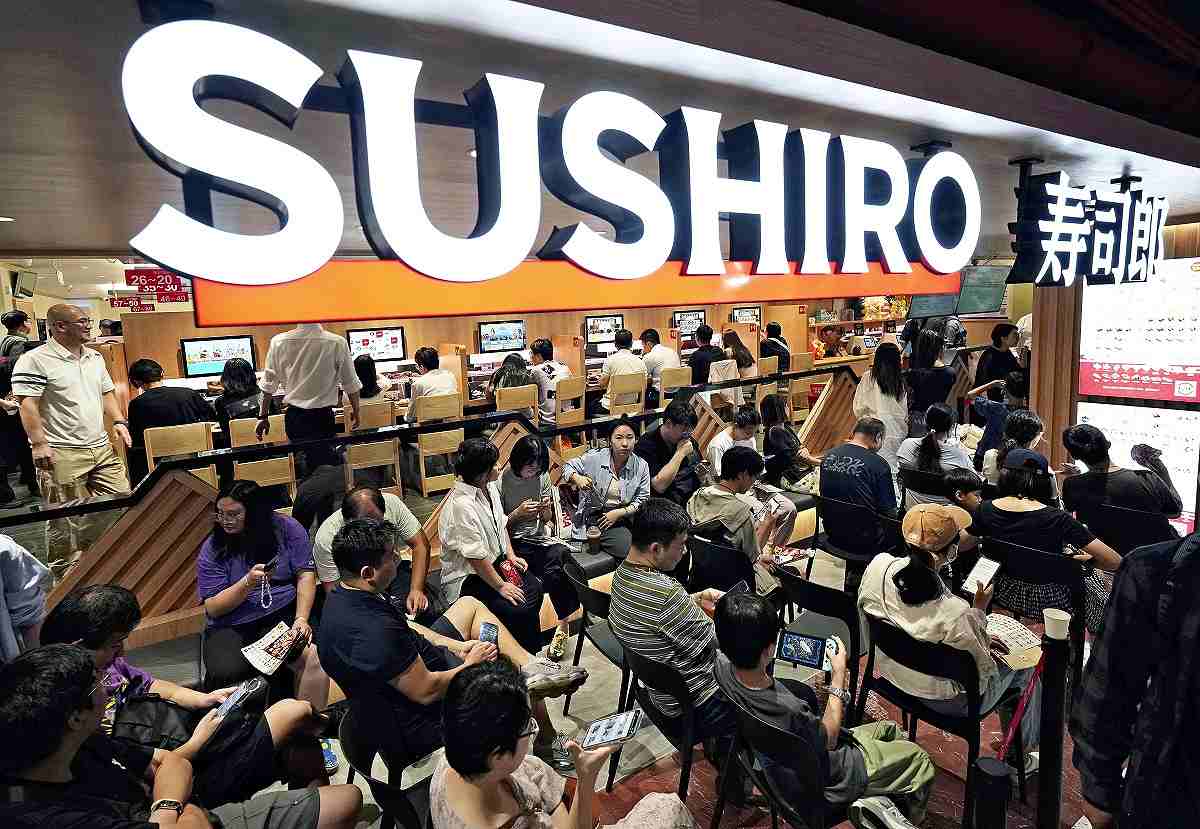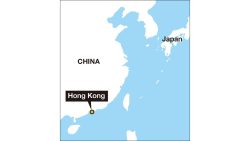Japan’s Conveyor-Belt Sushi Chains Making the Rounds Again in China; Backlash from Treated Water Release Wanes

Customers cram into a Sushiro restaurant during its grand opening on Aug. 21 in Beijing.
15:34 JST, September 4, 2024
BEIJING — Japanese food is back on the menu in China, and Japan’s leading conveyor-belt sushi chains are happily watching customers pile up the dishes again.
The Sushiro chain opened a new Chinese outlet — and its first in Beijing — in August, while Hamasushi has seen its number of restaurants in China nearly double in the past year to almost 70.
The trend comes in the wake of fierce backlash in China against restaurants featuring Japanese cuisine following the release of treated water from the tsunami-damaged Fukushima No. 1 nuclear power plant into the ocean in August 2023. The negative impact seems to have waned.
At the grand opening of Sushiro’s first Beijing outlet on Aug. 21 in a commercial building in the central part of the capital, customers waited for as long as 10 hours at one point.
The prices in China are set higher than in Japan. For example, squid sushi is priced at 10 yuan (about ¥200), while it goes for ¥120 to ¥150 including tax in Japan. Even so, “I want to experience Japanese-style preparation and service,” a 60-year-old Beijing man said.
Food & Life Companies Ltd., which operates the Sushiro chain, said it currently has 45 outlets across China. The company has been opening new restaurants at a slower pace than it planned in November 2023
due to the treated water controversy and China’s stagnant economy. But it plans to continue to open new restaurants.
Hamasushi, part of the Zensho Holdings Co. group, entered the Chinese market in 2014 and had 12 outlets by the end of 2020 and 34 in September 2023. It picked up the pace and now has nearly doubled its total in one year, reaching 67 at the end of August this year.
Kurasushi made its China debut in Shanghai in June 2023 and currently has three outlets. The chain plans to raise the number to 100 in mainland China over the next decade.
The Chinese government reacted harshly to Japan’s releasing of water from the Fukushima nuclear plant, instituting a ban in August 2023 on imports of fishery products from Japan and the serving of seafood from Japan in domestic establishments.
China’s state-run media also played a key role in fanning baseless anxiety about seafood products from Japan, and establishments that featured Japanese cuisine saw drops in customers and sales.
However, “Conveyor-belt sushi is reasonably priced and very popular with consumers, so it is quickly recovering,” said a source in the sushi chain industry.
The Chinese restaurant sector is seeing a rash of bankruptcies and closures, mainly among fine dining establishments, due to sluggish consumer spending.
With commercial facilities looking to fill the ever-growing number of vacant tenant spaces, it has lowered the costs for moving into prime locations, providing optimal conditions for the sushi chains to continue their expansion.
"World" POPULAR ARTICLE
-

8 Japanese Nationals Stranded on Indonesia’s Sumatra Island
-

U.S. Senate Resolution Backs Japan, Condemns China’s Pressure
-

Mozambican Cooking Class Held in Matsuyama, Ehime Pref.; Participants Don Aprons, Bandanas Made from Traditional Mozambique Fabric
-

China to Impose Sanctions on Shigeru Iwasaki, Former Head of Japan’s Self-Defense Forces, Who Serves as Adviser to Taiwan’s Executive Branch
-

South Korea’s Top Court Dismisses Nippon Steel Appeal in Lawsuit over Requisitioned Worker
JN ACCESS RANKING
-

Tokyo Economic Security Forum to Hold Inaugural Meeting Amid Tense Global Environment
-

Keidanren Chairman Yoshinobu Tsutsui Visits Kashiwazaki-Kariwa Nuclear Power Plant; Inspects New Emergency Safety System
-

Imports of Rare Earths from China Facing Delays, May Be Caused by Deterioration of Japan-China Relations
-

University of Tokyo Professor Discusses Japanese Economic Security in Interview Ahead of Forum
-

Japan Pulls out of Vietnam Nuclear Project, Complicating Hanoi’s Power Plans























